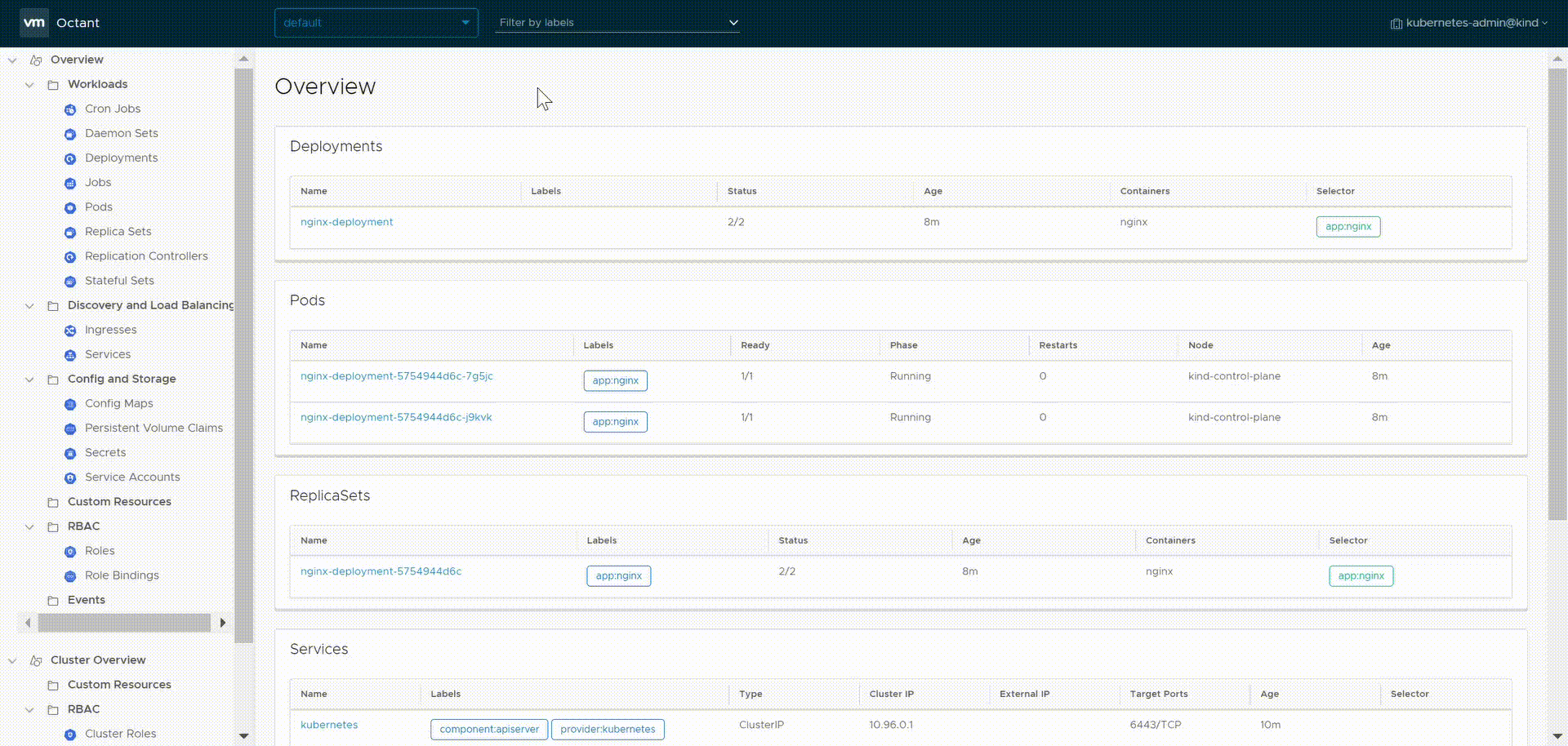A web-based, highly extensible platform for developers to better understand the complexity of Kubernetes clusters.
Octant is a tool for developers to understand how applications run on a Kubernetes cluster. It aims to be part of the developer's toolkit for gaining insight and approaching complexity found in Kubernetes. Octant offers a combination of introspective tooling, cluster navigation, and object management along with a plugin system to further extend its capabilities.
-
Resource Viewer
Graphically visualizate relationships between objects in a Kubernetes cluster. The status of individual objects are represented by color to show workload performance.
-
Summary View
Consolidated status and configuration information in a single page aggregated from output typically found using multiple kubectl commands.
-
Port Forward
Forward a local port to a running pod with a single button for debugging applications and even port forward multiple pods across namespaces.
-
Log Stream
View log streams of pod and container activity for troubleshooting or monitoring without holding multiple terminals open.
-
Label Filter
Organize workloads with label filtering for inspecting clusters with a high volume of objects in a namespace.
-
Cluster Navigation
Easily change between namespaces or contexts across different clusters. Multiple kubeconfig files are also supported.
-
Plugin System
Highly extensible plugin system for users to provide additional functionality through gRPC. Plugin authors can add components on top of existing views.
-
Download the
.debor.rpmfrom the releases page. -
Install with either
dpkg -iorrpm -irespectively.
-
Open the releases page from a browser and download the latest tarball.
-
Extract the tarball:
$ tar -xzvf ~/Downloads/octant_0.4.1_Linux-64bit.tar.gz octant_0.4.1_Linux-64bit/README.md octant_0.4.1_Linux-64bit/octant -
Verify it runs:
$ ./octant_0.4.1_Linux-64bit/octant version
Before starting Octant, make sure you have access to a healthy cluster. If kubectl is installed, test using kubectl cluster-info.
Start running Octant:
$ octant
Octant should immediately launch your default web browser to an available high level port on 127.0.0.1. (i.e. http://127.0.0.1:51234)
For configuring Octant, setting up a development environment, or running tests, refer to the documentation here.
Plugins are a core part of Octant in the Kubernetes ecosystem. A plugin can read objects and allows users to add components to Octant's views.
An example plugin can be found in cmd/octant-sample-plugin and installed to the default plugin path with make install-test-plugin.
Documentation for plugin components can be found in docs/plugins.
Feature requests, bug reports, and enhancements are welcome. Contributors, maintainers, and users are encouraged to collaborate through these communication channels:
New contributors will need to sign a contributor license agreement before code changes can be merged. Follow the instructions given by vmwclabot after opening a pull request.
Pull requests should also include a changelog with the naming convention described here.
See our roadmap for tentative features in a 1.0 release.
Octant is available under the Apache License, Version 2.0


